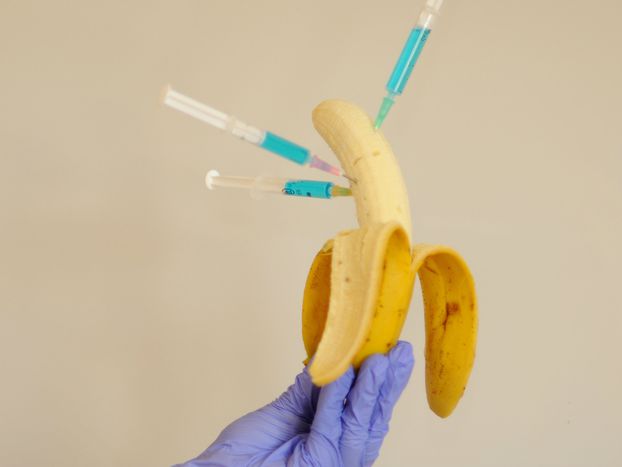
French moratorium on GMO in France : will Brussels go against it ?
Published on
Article first publiched in French on La Parisienne on January 15, 2008. After a long wait, French president Nicolas Sarkozy decided to activate the safety clause to ban cultivation and commercialization in France of a GMO crop authorized by the European Union. The MON-810 corn will neither be sown not harvested this year in France.
French president Nicolas Sarkozy used his safety clause and decided to suspend the cultivation and commercialization on the French Territory of the only GMO that may be cultivated in Europe,.
Kill the corn borer and the others!
France’s provisional High Authority on GMO (a watchdog authority created after the so called “Grenelle de l’environnement”) gave its study back on January 9th where it concludes to the existence of "a certain number of new scientific facts relating to a negative impact on flora and fauna."
Contrary to the statements of the previous studies, the wind born pollen from GMO crops has been found to be more important than planned and directly harmful to some insects. The MON 810 maize was originally only engineered to kill the a pest insect called the corn borer which revels in corn leaves.
Despite the fact that the green organizations gave a warm welcome to the president’s decision on using the safety clause, the file is far from closed.
Besides the coming Monsanto’s defense (developer of the MON 810 corn), the EU might cause to France some troubles.
Brussels against its state members
Based on different studies, Germany, Austria, Greece, Hungary and Poland had activated, in the past, this safety close for the same scientific reasons.
Under the EU law, the European Food Safety Authority has to approve this moratorium which it so far always rejected by pointing out a lack of scientific proof. Still, the scientists composing the Authority may have drawn more convincing conclusions… we never know.
However, in the same time, Brussels never managed to compel the states to go back on their decision. In order to do so, a qualified majority is needed in a vote bringing the 27 ministries of environment together. And as a whole, the European countries are rather cautious about GMO, considering the large opposition within their public opinion.
Europe against the world.
The pro-GMO met with a resounding failure on last vote of that kind concerning Austria. Only the UK, the Netherlands, Sweden and Czech Republic followed the EU position willing to reintroduce GM crops in Austria.
France had then backed up Austria and, in the name of the safety clause, approved the idea of possible moratoriums on GMO on a national level.
Non European countries such as the United States, Argentina or Canada, where GMO are widely spread, got quite irate about this decision and do not hesitate to take such cases to WTO court. These successive moratoriums mean for them less markets, now closed to their agricultural produce.
New discussions?
Last October, the Portuguese ministry of environment Fracisco Nenes Correia pointed out that a majority of European states disapproved of the Commission on this GMO matter, yet he reasserted that the will of the latest should be the norm respected by all. According to him this matter deserves new European discussionss. A debate between commissioners should be held in the beginning of February 2008.
Early february is also the moment chosen by the government of M. Fillon to present a new law on GMO crops to parliament.
France is to take the presidency of the EU in the second semester of 2008. Even though Nicolas Sarkozy has indicated his willingness to start discussions on a reform of the CAP, nothing has been said on GMO.
Jean-Sébastien Lefebvre.



